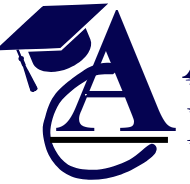Study in France

France is one of the most sought-after destinations for international students due to its high-quality education, world-class institutions, diverse culture, and affordable tuition fees. From engineering and business to art, design, and medicine, France offers a wide range of programs in both English and French. Pakistani students are increasingly choosing France for its international environment, post-study work opportunities, and government-supported scholarships. Whether you’re looking to pursue a Bachelor’s, Master’s, or PhD, France offers the perfect combination of academic excellence and cultural experience.
Table of Contents:
- Why Study in France?
- Admission Requirements in France
- Cost of Studying in France
- Scholarships for International Students in France
- Student Visa Requirements for France
- Post-Study Work Opportunities in France
- Set up a consultation with an expert
Why Study in France?
France ranks among the top study-abroad destinations worldwide, thanks to its advanced education system and internationally recognized degrees. The French government heavily subsidizes higher education, making tuition more affordable than in many other countries. Additionally, over 1,500 programs are offered in English, so students don’t always need to be fluent in French.
According to the QS Higher Education System Strength Rankings, France consistently ranks among the top 10 globally. The country is home to 35 universities ranked in the QS World University Rankings, including prestigious institutions like Sorbonne University, École Polytechnique, and HEC Paris.
France also offers a unique cultural experience, combining academic rigor with rich history, arts, cuisine, and international student life. Its central location in Europe makes it ideal for students who want to travel across the continent.
Admission Requirements in France:
There are two main academic routes to apply to French institutions:
Undergraduate Programs (Bachelor’s)
- High School Diploma (equivalent to French Baccalauréat)
- Language Proficiency (IELTS/TOEFL for English programs or DELF/TCF for French programs)
- CV & Personal Statement
- Letters of Recommendation (Optional)
- University Application via Parcoursup (for public universities) or directly on the university website
Graduate & Postgraduate Programs
- Bachelor’s Degree or equivalent
- Academic Transcripts
- English or French language certification
- Statement of Purpose (Motivation Letter)
- CV/Resume
- 1–2 Letters of Recommendation
- GRE/GMAT (Only for specific business/engineering schools)
Some programs may also require an interview or portfolio, especially for design and art courses.
Cost of Studying in France:
France offers affordable education, especially in public universities where the tuition is subsidized by the government.
Public Universities:
- Bachelor’s: ~€2,770 per year
- Master’s: ~€3,770 per year
- PhD: ~€380 per year
Private Institutions:
- €8,000 to €20,000 annually (depending on the course and institution)
Living Costs:
Living expenses in France vary by city. On average:
- Paris: €1,200–€1,800/month
- Lyon, Lille, or Toulouse: €800–€1,000/month
Expenses include accommodation, food, transportation, and personal spending.
Scholarships for International Students in France:
Several scholarships are available to Pakistani and other international students to help reduce tuition and living expenses:
- Eiffel Excellence Scholarship Program – Fully funded for Master’s and PhD students
- Campus France Scholarships – Country-specific opportunities for Pakistani students
- Erasmus+ Scholarships – Available for students in joint programs
- Charpak Scholarships – For Bachelor’s and Master’s students from outside the EU
- Université Paris-Saclay International Master’s Scholarship – Merit-based
Always check individual university websites for institutional scholarships.
Student Visa Requirements for France:
To study in France, Pakistani students must apply for a long-stay student visa (VLS-TS).
Required Documents:
- Valid passport
- University admission/acceptance letter
- Proof of accommodation in France
- Proof of financial resources (~€7,380/year)
- Health insurance
- Language proficiency (English/French)
- Academic transcripts and certificates
- Visa application form
- Proof of visa fee payment
- Flight reservation (optional)
Note: All documents must be translated into English or French by a certified translator.
Post-Study Work Opportunities:
France allows international students to stay and work after graduation. With a Master’s or higher degree, you can apply for a temporary residence permit to seek employment or start a business.
Key Facts:
- Students can work up to 964 hours/year (approx. 20 hrs/week) during studies
- After graduation, Master’s/PhD students can apply for a 1–2 year post-study work permit
- France offers Tech Visa and Talent Passport for qualified graduates in high-demand sectors
Internships during studies are also encouraged and are often part of the curriculum.
Set Up a Consultation With an Expert
Planning to study in France? We’re here to help you every step of the way! Whether you’re just exploring your options or ready to apply, our team of experienced counselors offers free consultation, university guidance, visa assistance, and pre-departure support.
We’ve helped hundreds of students from Pakistan successfully study in France and over 60 other countries. Book a one-on-one session with us and turn your study abroad dream into a reality!
WhatsApp/Call: +92 303 82 39 563
Email: info@adyanmigrants.com
Our FAQs – Frequently Asked Questions
Q: Can I study in France without knowing French?
Yes! Many universities offer full programs in English, especially at the Master’s level.
Q: Are scholarships available for Pakistani students?
Absolutely. Scholarships like the Eiffel, Campus France, and Erasmus+ are open to Pakistani nationals.
Q: Can I work while studying in France?
Yes. International students can work part-time up to 20 hours/week.
Q: How early should I apply for a France student visa?
It’s best to apply at least 3 months before your course starts.
Q: Do I need IELTS to apply for English-taught programs?
Yes, most institutions require IELTS 6.0–6.5 or an equivalent English test.

